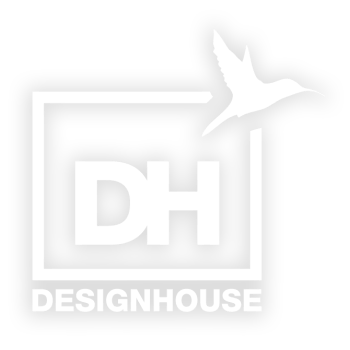WordPress Websites continue on the rise in 2017
A reliable and easy to use content management system (CMS) is at the top of the wish list for individuals and business owners who want a successful website. A website is a key marketing and information tool for businesses, with 81% of potential customers looking at a brand’s site before deciding to do business.
Making up 65% of the world’s global market, WordPress websites are one of the most popular content management systems on the web. It is estimated that 25.5% of all websites use WordPress as their content management system, and with 76.5 million blog sites and 50,000 sites launched daily, WordPress websites are at the forefront of the CMS sector. Both Fortune 500 companies and small businesses use WordPress to power their websites, and it is a firm favourite amongst the blogging community.
WordPress websites have positioned itself as a trusted content management system, and with little to no technological failures or disasters associated with the brand, this positive image has shaped it as the leading content management system platform.
With so many different content management systems available to use, how have WordPress websites cemented itself as the leading CMS platform in 2016?

Full flexibility: WordPress offers full flexibility for users. Whether they are looking to create a blog, an ecommerce website or a membership platform, WordPress enables a user to have a content management system that can be tailored for specific digital goals.
Creative opportunities: The WordPress content management system allows a user to be as creative as they want. With fully customizable options for the advanced user and expert help and guidance for those less confident, the CMS platform is one of the most creative options available in 2016.
SEO friendly: it is important that a website meets its SEO requirements, and as a content management system, WordPress enables users to reach this goal. SEO can be boosted with a range of effective plugins, along with a helpful community of users armed with search engine optimization tips and tricks.
Simple organization: the use of categories in the WordPress websites CMS is an effective way of organising posts into topics that are complementary. For example, if you are writing posts about company updates, the categories section is a neat way of filing them together for ease of reading and identification.
Spotlighting posts: similarly, WordPress’s sticky functionality enables the easy spotlighting of posts on websites. The feature overrides the chronological tendencies of the platform and enables a user to place a chosen post at the top of the list.
Post formats: WordPress places a premium focus on how content is displayed and which types can be uploaded onto its CMS. Users can upload different types of content including an aside, audio file, video, chat, gallery, image, link, quote or status.
Ease of use: WordPress websites are an easy platform for editors to publish content, removing the hassle and difficulty of using many other content management systems. Its ease of use as a blogging platform has raised the bar for web content publishing in general, with users expecting the same simplicity on other digital platforms.
In-house approach: from hosting to managing a website within the browser, WordPress’s in-house, joined up approach cuts out the hassle and lets users, developers and editors get on with the task at hand.
User experience: WordPress websites places user experience at the heart of its content management system. With fully mobile compatible templates and a focus on the user’s ease of use, visiting a WordPress website is definitely something a customer can look forward to!
Back-end advantage: with a clean and simple to navigate interface, the back-end of the WordPress CMS platform is quick, easy and enjoyable to use.
Open-source: designed and based on the open-source principle, WordPress is constantly being developed by engineers, making it a powerful, flexible and safe option for content management.
The Importance of social: the WordPress CMS places importance on social media functionality, enabling integrated sharing buttons across the platform. With a variety of plug-ins to enhance social sharing, WordPress is a top referrer of traffic multi-platform.
Tutorials and a supportive community: perhaps one of the best things about WordPress websites has a supportive online and offline community. With numerous groups, expert individuals, and tutorial guides, any problems that do occur can be solved quickly and efficiently by heading to a forum or using WordPress’s own help.
Trusted levels of security: WordPress is one of the most secure content management systems, with regular updates to keep its security up to speed for all users. It offers practical advice and guidance on how to keep a website secure, suggesting the use of only trusted plug-ins, basic tools and professional themes which are easy to update, monitor and contact the designer if a problem does occur.
Rich media: professional looking media is the gold standard for any website, and the WordPress CMS platform places an emphasis on rich media types. The platform is great for sharing rich media content such as videos and audio files, with gallery tools enabling users to create professional photo galleries, especially for their websites.
Easy integration: the WordPress content management system is easily integratable with other important applications and functions such as Mailchimp for email marketing, WooCommerce for a store marketplace and Gravity Forms for customers to place their orders. Each of these tools and many others are vital for small business owners, and the WordPress platform makes it easy for a website to stand up to the rigors of ecommerce.
As with any big digital decision, the right content management system can make managing your website a task that you and your team actually look forward to! WordPress is the leader amongst a whole host of content management systems, and its dominance in the industry is unlikely to halt any time soon. Placing user experience at the heart of the system, WordPress is a leader in 2016 and beyond.
Why do you use WordPress as your content management system? We’d love to hear your thoughts and experience of using the platform, connect here!
